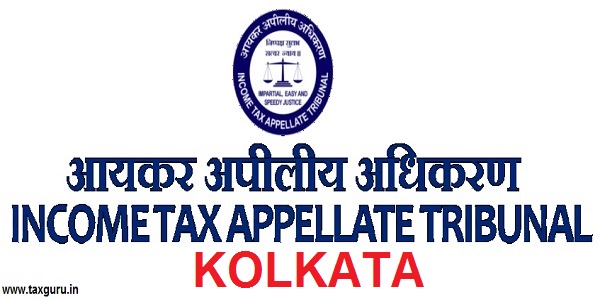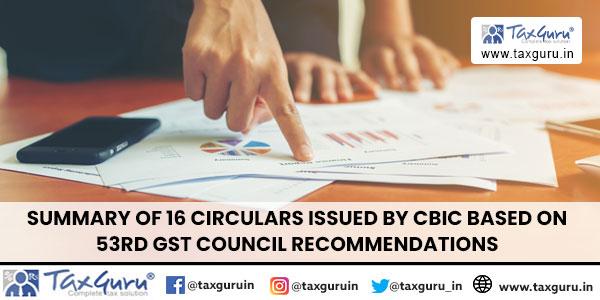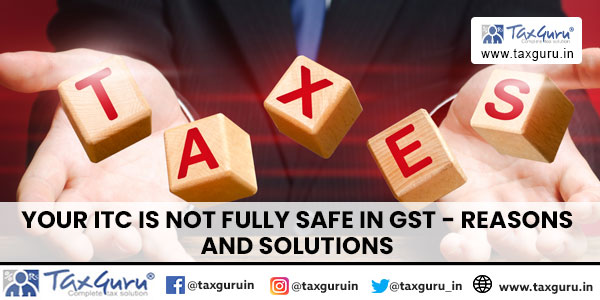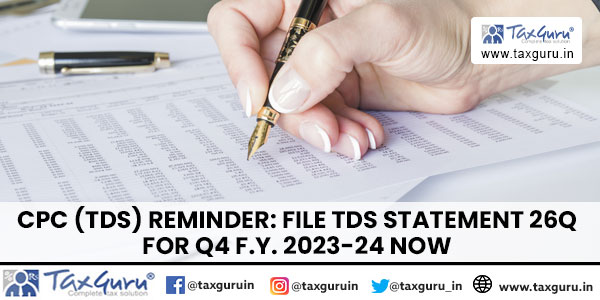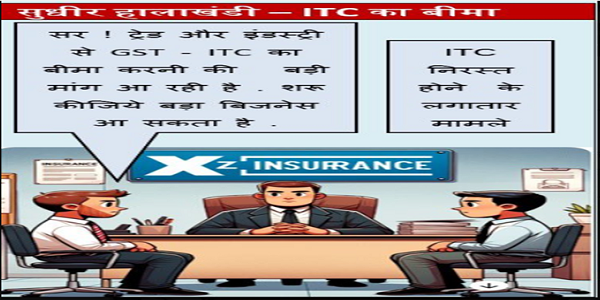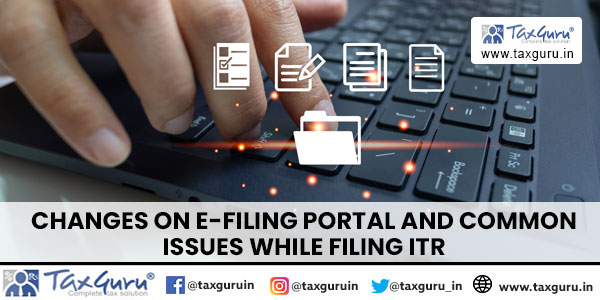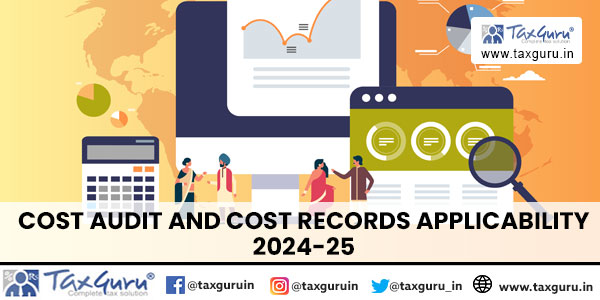Case Law Details
Institute of Company Secretaries of India Vs Biman Debnath & Ors. (Supreme Court of India)
Supreme Court held that as per regulation 114(4) of the Company Secretaries Regulations, 1982 election can be challenged by the candidate concerned. Hence, writ petition filed by the petitioner not contesting the election of office bearers to the High Court was wrongly entertained.
Facts-
As the post of Chariman of Eastern India Regional Council of Institute of Company Secretaries of India go vacant, the same was required to be filled in for the remaining period. The Vice Chairman (respondent no. 1) was allowed to chair the meeting for the limited purpose of election to the post of Chairman for the remaining period. However, it appeared that respondent no. 1 was disrupting the meeting and remaining members appointed Mr. Anil Kumar Dubey (respondent no. 3) to chair the same. Post election, Mr. Anil Kumar Dubey was elected as Chairman for the remaining period.
Accordingly, respondent no. 1 filed a writ petition before the learned Single Judge contending that the meeting was illegal. According to Respondent no.1, in absence of the Chairman, the ViceChairman would become the Chairman and therefore the meeting was required to be chaired by him.
The learned Single Judge allowed the writ petition and set aside the elections of the office bearers elected in the meeting.
The Judgment and Order passed by the learned Single Judge has been confirmed by the impugned judgment and order of the Division Bench of the High Court. Hence, the present appeal at the instance of the ICSI.
Conclusion-
In view of Regulation 114(4) of the Regulations, the High Court ought not to have entertained the writ petition challenging the validity of the election. Even otherwise, it is required to be noted that even as per Regulation 114(4), the election can be challenged by the candidate concerned. In the present case respondent no.1 who challenged the election of the office bearers did not even contest the election. Under the circumstances the High Court erred in entertaining the writ petition challenging the election at the instance of the respondent no.1 who even did not contest the election of the office bearers.
FULL TEXT OF THE SUPREME COURT JUDGMENT/ORDER
1. Feeling aggrieved and dissatisfied with the impugned judgment and order dated 13.04.2022 passed by the High Court of Judicature at Calcutta in MAT No.213 of 2022 and MAT 219 of 2022 with CAN 1 of 2022 by which the High Court has dismissed the said appeal and has confirmed the judgment and order passed by the learned Single Judge by which the learned Single Judge allowed the writ petition bearing No.WPA 1367 of 2022 by quashing and setting aside the election of the office bearers of the Regional Council for the year 2022 held in the 316th Meeting of Eastern India Regional Council of the Institute of Company Secretaries of India, the Institute of Company Secretaries of India has preferred the present appeal.
2. Notice dated 20.12.2021 was issued for elections to be held on 27.12.2021 for the Eastern India Regional Council (hereinafter referred to as ‘EIRC’) of Institute of Company Secretaries of India (hereinafter referred to as ‘ICSI’) to take effect from 19.01.2022 for the period of one year. The meeting of the Regional Council was required to be chaired by the Chairman, EIRC. However, before the actual date of election on 27.12.2021, the Chairman, EIRC was disqualified to hold his office on 22.12.2021. Thus, the office of the Chairman fell vacant in terms of Regulation 117(2) of the Company Secretaries Regulations, 1982 (hereinafter referred to as “Regulations 1982’). As the post of Chairman fell vacant, the same was required to be filled in for the remaining period in terms of Regulation 119(2). The contesting respondent herein as a Vice Chairman was allowed to chair the meeting for the limited purpose of election to the post of Chairman for the remaining period of current year ending on 18.01.2022 in terms of Regulation 119(2). The contesting respondent no.1 herein as a Vice Chairman was allowed to chair the meeting for the limited purpose of election to the post of Chairman for the remaining period of the current year ending on 18.01.2022 in terms of Regulation 119(2). It appears that the contesting respondent no.1 was disrupting the meeting, the remaining members decided to proceed with the agenda item i.e. electing the chairman for the remaining period and for that purpose appointed respondent no.3 – Mr. Anil Kumar Dubey to chair the said item. That thereafter elections took place and the respondent no.3 – Mr. Anil Kumar Dubey was duly elected as Chairman for the remaining period.
2.1 He was elected for the period 19.0 1.2022 to 18.0 1.2023. The Respondent no.1 who did not participate in the election and/or contest filed the writ petition before the learned Single Judge contending inter alia that the meeting dated 27.12.2021 chaired by Respondent no.3 was illegal. According to Respondent no.1, in absence of the Chairman, the ViceChairman would become the Chairman and therefore the meeting was required to be chaired by him. However, it was the case on behalf of the Institute and the contesting original respondents that meeting was convened legally and the Chairman was elected for the remaining period as per Regulation 119(2) of the Regulations, 1982. It was the specific case on behalf of the contesting original respondents that it was a case of vacation of office and not the absence of an office bearer for a particular period of time. The learned Single Judge allowed the writ petition and set aside the elections of the office bearers elected in the meeting held on 27.12.2021 mainly on the ground that the meeting was not chaired by the ViceChairman who in absence of the Chairman was required to conduct and/or chair the meeting as Chairman.
The Judgment and Order passed by the learned Single Judge has been confirmed by the impugned judgment and order of the Division Bench of the High Court. Hence, the present appeal at the instance of the ICSI.
3. We have heard Shri Sanjiv Sen, learned Senior Advocate appearing on behalf of the appellant and Shri Ritin Rai, learned Senior Advocate appearing on behalf of the contesting respondent no.1. We have gone through the impugned judgment and order passed by the learned Single Judge as well as the Division Bench of the High Court.
4. From the judgment and order passed by the learned Single Judge confirmed by the Division Bench of the High Court it appears that the learned Single Judge quashed and set aside the election of the office bearers of the EIRC on the ground that the meeting was not presided over by the ViceChairman (Respondent 1 herein). Therefore, the short question which is posed for consideration is as to whether the meeting i.e. 21.07.2021 was presided over by the person duly elected as Chairman for the remaining period?
4.1 While considering the aforesaid issue relevant provisions of the Regulations 1982 are required to be referred to namely Regulations 92, 117 & 119 which are as under:
“92. Chairman of the Council. At all meetings of the Council, the President, and in his absence the VicePresident shall be the Chairman; in the absence of both, the members present shall elect one of the their number to be the Chairman of meeting.
Provided that, at the first meeting of any Council the President of the outgoing Council, or in his absence its VicePresident, shall act as the Chairman until such time a President is elected under the provisions of subsection (1) of section 12.
Provided further that in the absence of both the President and the Vice president of the outgoing Council the members of the Council present shall elect one of the members to be the Chairman of the meeting until such time a President is elected under the provisions of subsection (1) of section 12.”
***
“117. Vacancies. (1) A member of a Regional Council may at any time resign his membership by writing under his hand addressed to the Chairman of the Regional Council and the seat of such member shall become vacant when such resignation is notified in the Journal or when the Regional Council next meets, whichever is earlier.
(2) An elected member of a Regional Council who has been found guilty of any professional or other misconduct and awarded penalty of fine or does not attend three consecutive meetings of the Regional Council or Committee thereof, unless he applies for leave of absence in writing and it is granted for each meeting, shall be deemed to have vacated office from the date of the order or at the conclusion of the third meeting unless he applies for leave of absence in writing and it is granted for each meeting.
(3) Any vacancy caused by the resignation, death or removal from the Register of an elected member of the Regional Council may be fi by the Regional Council by cooption of another member entitled to vote in and stand for election to the Regional Council with the approval of the President.
(4) If a member of the Regional Council [including a member of the Council becoming a member of the Regional Council under clause (a) of sub regulation (2) of Regulation 111] changes his professional address from the regional constituency to which he belonged to at the time of election or cooption, as the case may be, to another regional constituency, such member shall cease to be member of that Regional Council from that date. The vacancy so caused may be filled by the Regional Council by cooption of another member in the same manner as provided in sub regulation (3).
(5) In the case of a member of a Regional Council being elected to the Council, without prejudice to his right to be represented on the Regional Council under clause (a) of sub regulation (2) of Regulation 111, he shall cease to be an elected member of the Regional Council and the vacancy thus caused may be filled up by cooption’s by the Regional Council in the manner set out in sub regulation (3). (6) A coopted member shall hold office as a member of the Regional Council for the duration of office of that Regional Council.”
***
“119. Proceedings of the Regional Council. (1) One third of the members of the Regional Council for the time being shall constitute the quorum.
(2) Every Regional Council shall at its first meeting held after its constitution and in subsequent years at a meeting to be held in December of every year elect from amongst its members a Chairman, a Vice Chairman, a Secretary and a Treasurer thereof to hold office for a period commencing from the date of its first meeting after constitution or from 1st January of the subsequent year as the case may be, till the 31st December of that year and so often as any of those offices become vacant, the Regional Council shall elect another person from amongst its members to hold the office for the remaining period of a year.
Provided that the retiring office bearers shall be eligible for reelection to any of the offices of the Regional Council if they continue to be members of the Regional Council.
(3) The first meeting of the Regional Council referred to in sub regulation
(2) shall be called and held within one month from the date of its constitution 70[* * * * * *].
(4) If within half an hour from the time appointed for the said first meeting of the Regional Council referred to hereinbefore, a quorum as mentioned in sub regulation (1) above is not present, the said first meeting shall notwithstanding anything contained in that Regulation stand adjourned to the same day in the next week at the same time and place and at such adjourned meeting of the Regional Council, the member or members present, shall constitute the quorum and shall have power to transact all the business which could properly have been transacted at the original meeting.”
4.2 Regulation 117 deals with the vacancies. As per Regulation 117(2) an elected member of Regional Council who has been found guilty of any professional or other misconduct.. , shall
be deemed to have vacated office from the date of the order. In the present case the then Chairman, EIRC was disqualified to hold his office on 22.12.2021. Therefore, it was a case of vacation of office of the Chairman.
4.3Regulation 119 deals with the Proceedings of the Regional Council. As per Regulation 119(2) every Regional Council shall at its first meeting held after its constitution and in subsequent years at a meeting to be held in December of every year elect from amongst its members a Chairman, a ViceChairman, a Secretary and a Treasurer thereof to hold office for a period commencing from the date of its first after constitution or from 1st January of the subsequent year as the case may be till the 31st December of that year and so often as any of those offices become vacant, the Regional Council shall elect another person from amongst its members to hold the office for the remaining period of a year. Thus, as the office of the Chairman fell vacant due to its disqualification any person from amongst its members was required to be elected as Chairman and/or to hold the office of the Chairman for the remaining period. Therefore, in exercise of powers under Regulation 119(2) of the Regulations, 1982, Respondent No.3 Anil Kumar Dubey was elected as the Chairman for the remaining period who presided over the meeting dated 27. 12.2021.
4.4 However, it was the case on behalf of Respondent no.1 which came to be accepted by the learned Single Judge and the Division Bench of the High Court that being a Vice Chairman, a meeting was required to be chaired/presided over by him in absence of the Chairman. Heavy reliance was placed on Regulation 92(2). On fair reading of Regulation 92(2) read with Regulation 117(2), we are of the opinion that Regulation 92(2) shall not be applicable at all. Regulation 92(2) shall be applicable only in a case of absence and not in a case where the post of Chairman and/or office bearer has fallen vacant. There is a distinction between the absence and the post fallen vacant. Regulation 92(2) shall be applicable in a case where the Chairman and/or the office bearer though is not disqualified but is absent for some reason. Regulation 117(2) shall be applicable in a case where the elected member of the Regional Council has been disqualified on he being found guilty of any professional or other misconduct and awarded penalty of fine. Therefore, in case of a vacation of office as per Regulation 117(2), such post fallen vacant is required to be filled in by election by electing another person from amongst its members to hold the office for the remaining period of a year (Regulation 119(2)). In that view of the matter both, the learned Single Judge as well as the Division Bench of the High Court have seriously erred in misinterpreting Regulation 92(2) and Regulation 117 read with Regulation 119(2). Both, the learned Single Judge as well as the Division Bench of the High Court have not appreciated the distinction between the vacation of office under Regulation 117(2) of the Regulation and the absence of an office bearer under Regulation 92. Under the circumstances both, the learned Single Judge as well as the Division Bench of the High Court have seriously erred in quashing and setting aside the election of the office bearers of the EIRC of ICSI held in the meeting held on 27.12.2021 on the ground that the meeting was not presided over by the Vice Chairman (Respondent no.1 herein).
5. Now so far as the submission made by Shri Ritin Rai, learned Senior Advocate appearing on behalf of the contesting respondent no.1 that even otherwise the election was not held legally and there was irregularity in conducting the election/meeting is concerned, at the outset it is required to be noted that there were disputed questions of fact on whether the meeting and/or election was irregularly conducted or not. As per Regulation 114(4) whether any dispute arises regarding any election to a Regional Council, the matter may be referred by the candidate concerned within 30 days from the date of the declaration of the result of the election, to the President and the decision shall be final. Under the circumstances, in view of Regulation 114(4) of the Regulations, the High Court ought not to have entertained the writ petition challenging the validity of the election. Even otherwise, it is required to be noted that even as per Regulation 114(4), the election can be challenged by the candidate concerned. In the present case respondent no.1 who challenged the election of the office bearers did not even contest the election. Under the circumstances the High Court erred in entertaining the writ petition challenging the election at the instance of the respondent no.1 who even did not contest the election of the office bearers.
6. In view of the above and for the reason stated above present appeals succeed. The impugned judgment and order passed by the Division Bench of the High Court as well as the learned Single Judge quashing and setting aside the election of the office bearers of the EIRC of the ICSI held on 27.12.2021 are hereby quashed and set aside. The original writ petitions stand dismissed. Present appeals are accordingly allowed. No costs.





